This term in class we’ve been observing different types of students’ behaviour. This might be of special interest to those of you who are going to become teachers. Of course, we don’t want to dissuade you from becoming a teacher, but it’s always good to be aware in advance, right? And please don’t feel offended! The descriptions are slightly exaggerated and/or ironic. So have a laugh – with us, at us, at yourself – and have fun!
 The chatterer
The chatterer
Yeah, you all know them – those students who can’t keep their mouth shut for one minute. They just have to talk all the time, usually not about the topic being discussed, and in the case of a language course, not necessarily in the language in question!
The “churchmouse”
Church and university are different, of course, but a “churchmouse” is the opposite of the chatterer: a student who doesn’t say a word in class, at least not voluntarily.
Teacher’s pet
If teachers don’t have a pet at home, they may well have one in class. The so-called teacher’s pet hangs on a teacher’s lips, always does the homework and maybe even some extra reading, knows the answer to practically every question in class, and, naturally, does well in the final exam (grrr!).
The show-off
This is a student whose hobby is trying to impress fellow students, but especially the teacher, by either asking super-intelligent questions or permanently challenging the other students’ comments.
The techie
Jodel, Facebook, WhatsApp and whatever… the opportunities provided by modern technology are highly recommendable to all those students who love to distract themselves in class. Fortunately, the documents on Digicampus are still available after all, so there is yet another excuse to use technical devices in class…
The distraction seeker
How can students avoid boredom in lectures, without using any technical devices? Some are quite creative, and think of great activities, maybe taking a low-tech step back in time: writing poems, translating song lyrics, knitting or whatever else they might do to keep themselves busy while (more or less) pretending to listen to the lecturer.
Of course, the list could be continued endlessly. Recognise yourself? Or is your type of student still missing? Maybe you can think of others. Observe your fellow students – we promise that it’ll be fun (certainly an entertaining activity for distraction seekers – maybe this was how we got the idea of writing this article in the first place)!
Authors: Anita Hauzenberger & Philipp Soballa
Picture: created with tagul.com






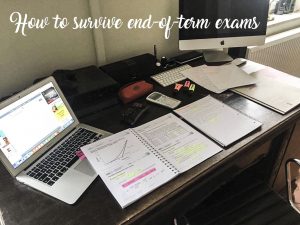
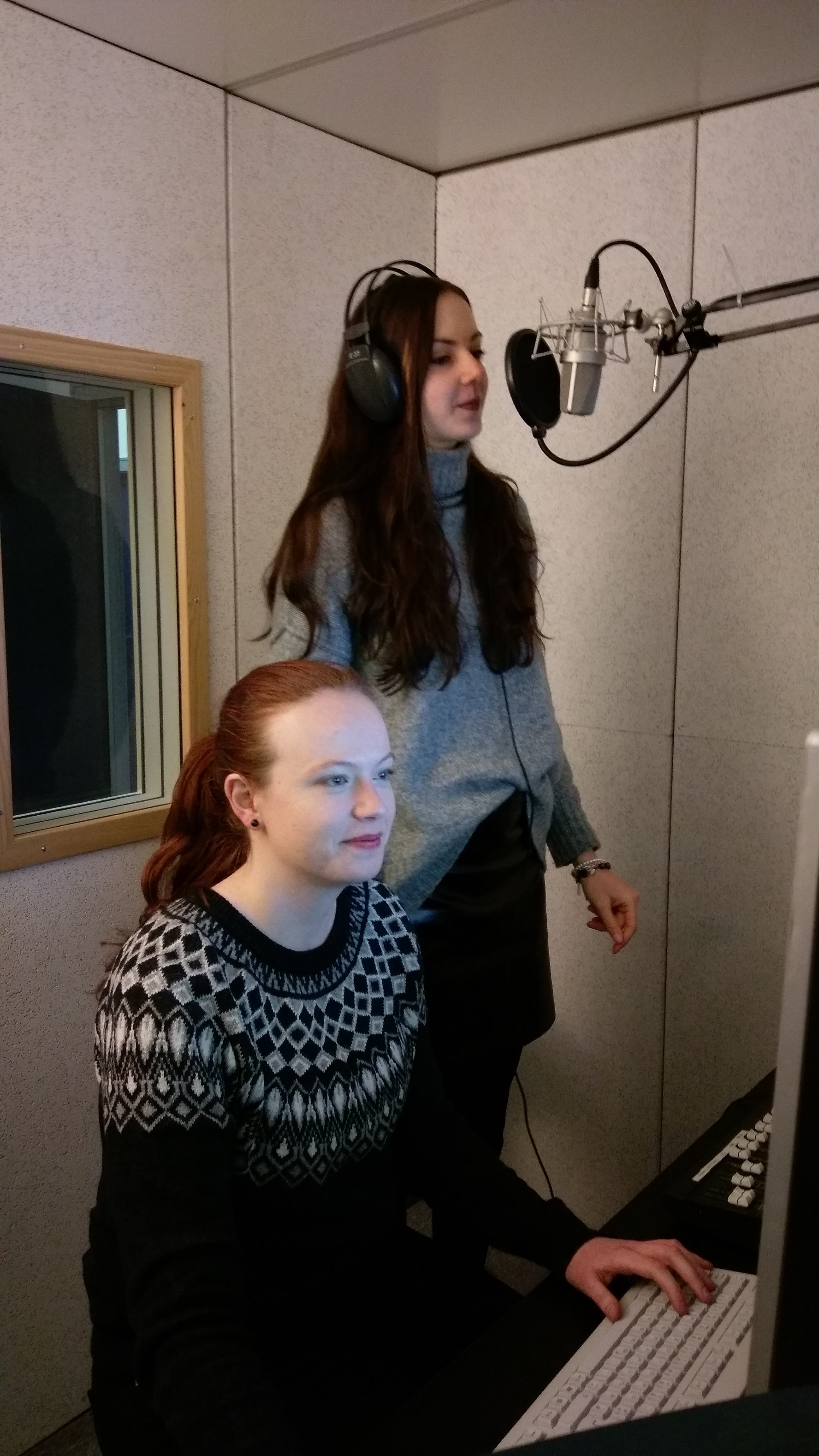

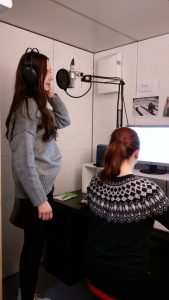 Listen in or become a radio celebrity yourself!
Listen in or become a radio celebrity yourself!
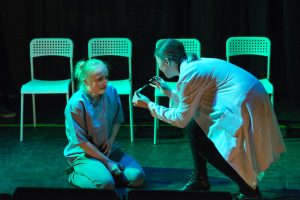 I actually can’t sum it up in more detail, since the main point of this play is that what you see isn’t 100% clear. For example, if you watch A Mid-summer Night’s Dream, you have a clear storyline to follow (they’re in love, they flee, chaos ensues, they get back together, happy end). You also have clearly defined characters with their own traits, which you discover while watching or reading. But 4.48 Psychosis doesn’t provide you with such things. Personally, I wasn’t entirely sure about anything. I was constantly wondering. I was wondering if the doctors really treat her like that, or if it’s just how she sees them treating her. I was wondering if some scenes actually happened, or if they were just a product of the patient’s imagination or even dreams. I was wondering what might have caused her to feel so bad in the first place…
I actually can’t sum it up in more detail, since the main point of this play is that what you see isn’t 100% clear. For example, if you watch A Mid-summer Night’s Dream, you have a clear storyline to follow (they’re in love, they flee, chaos ensues, they get back together, happy end). You also have clearly defined characters with their own traits, which you discover while watching or reading. But 4.48 Psychosis doesn’t provide you with such things. Personally, I wasn’t entirely sure about anything. I was constantly wondering. I was wondering if the doctors really treat her like that, or if it’s just how she sees them treating her. I was wondering if some scenes actually happened, or if they were just a product of the patient’s imagination or even dreams. I was wondering what might have caused her to feel so bad in the first place…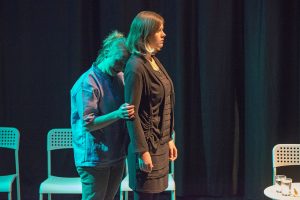 But the fascination I experienced was not only as a result of the play itself. Because, as we all know, no matter how good a play is, if you have bad actors, it’s worth nothing at all. Fortunately, the university has some amazingly talented students. They were all brilliant, especially Anna Hilbel, who did a fantastic job in the lead role. The amount of text she had to learn was incredible (trust me – there’s a ton of really long, hard monologues in this one), and I was amazed by the feelings she puts into her performance. I believed EVERYTHING. I believed her anger, her despair, her love… everything. At this point, I really have to give credit to Mr. Beck as well, for directing and coaching. The play allows every director a lot of freedom to make it theirs – and he nailed it.
But the fascination I experienced was not only as a result of the play itself. Because, as we all know, no matter how good a play is, if you have bad actors, it’s worth nothing at all. Fortunately, the university has some amazingly talented students. They were all brilliant, especially Anna Hilbel, who did a fantastic job in the lead role. The amount of text she had to learn was incredible (trust me – there’s a ton of really long, hard monologues in this one), and I was amazed by the feelings she puts into her performance. I believed EVERYTHING. I believed her anger, her despair, her love… everything. At this point, I really have to give credit to Mr. Beck as well, for directing and coaching. The play allows every director a lot of freedom to make it theirs – and he nailed it.


 cool, but, well… famous. My favourite place was a small cafe a bit further down the road. You still had the whole setting, but you could actually talk without having to shout at each other or having to cope with getting elbowed in the back. Keep your eyes open and you’ll find a bunch of places that are not on tourists’ radar.
cool, but, well… famous. My favourite place was a small cafe a bit further down the road. You still had the whole setting, but you could actually talk without having to shout at each other or having to cope with getting elbowed in the back. Keep your eyes open and you’ll find a bunch of places that are not on tourists’ radar.